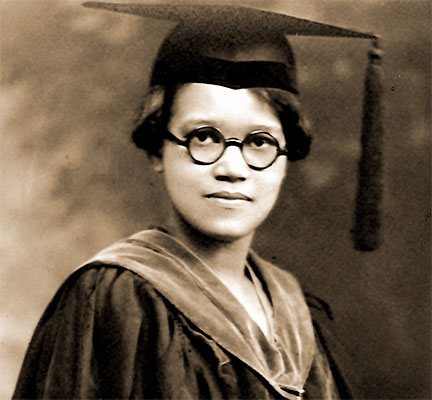Sadie Tanner Mossell Alexander Born
[wp_ad_camp_1]1898 – Sadie Tanner Mossell Alexander Born.
1969 – Clifton Wharton Jr. was named President of Michigan State University
Clifton Wharton Jr. is a prominent figure in the realms of education, business, and diplomacy, breaking barriers and leaving a lasting legacy for generations to come. Born on September 13, 1926, in Boston, Massachusetts, Wharton’s life has been marked by a series of firsts, as he became the first African American to hold key leadership positions in various prestigious institutions and organizations.
Wharton’s journey began at the age of sixteen when he enrolled at Harvard University, ultimately earning his Bachelor of Arts degree in 1947. He continued his academic pursuits, completing a master’s degree at the School of Advanced International Studies at Johns Hopkins University in 1948, and then obtaining a Ph.D. in economics from the University of Chicago in 1958. Wharton’s doctoral dissertation, focusing on the economic development of Burma, provided a strong foundation for his expertise in international economics and development.
In 1969, Wharton broke racial barriers when he was appointed president of Michigan State University (MSU), becoming the first African American to lead a major American research university. His tenure at MSU was marked by a significant increase in funding for academic programs and research, and an emphasis on diversifying the student body and faculty. Wharton’s leadership contributed to MSU’s growth and reputation as a leading research institution.
After leaving MSU in 1978, Wharton became the first African American chancellor of the State University of New York (SUNY) system. Once again, he focused on expanding academic and research programs, while emphasizing the importance of access to higher education for underrepresented groups. His vision for SUNY helped shape the system into one of the largest and most diverse public university systems in the United States.
Wharton’s success in academia led to a distinguished career in business. In 1987, he became the first African American CEO of a Fortune 500 company when he was appointed chairman and CEO of TIAA-CREF, a major financial services organization. Under his leadership, the company’s assets more than doubled, from $58 billion to $130 billion, solidifying its status as a major player in the financial industry.
In addition to his accomplishments in education and business, Wharton served as the United States Deputy Secretary of State from 1993 to 1994, under President Bill Clinton. As the first African American to hold this position, he played a crucial role in shaping American foreign policy, particularly in the areas of economic development and international trade.
Throughout his illustrious career, Clifton Wharton Jr. has been a trailblazer, breaking barriers and opening doors for future generations. His achievements have demonstrated that success and leadership know no boundaries, and his lasting legacy serves as an inspiration for those striving to make a difference in the world.











